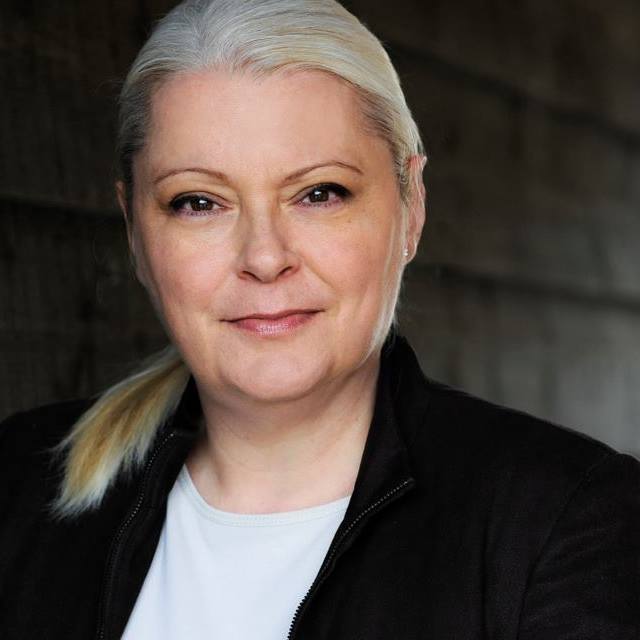Before I even start to ask the question, I can already feel my head beginning to pound, and my frustration begins to rise. I am going to ask my beautiful Mother if she would like a cup of tea. A simple, innocuous question. Why am I beginning to feel like this before I have even asked it? Why would I? It's an uncomplicated, straight forward, yes or no question? Just get on and ask it!
I fight the urge to make the tea anyway, take a deep breath and ask her. Two minutes later, we have talked about how cold it was last night; whether the cricket is on today and what we are having for supper. But I am none the wiser about whether she would like a cup of tea or not. I ask her again and hold up a cup. Bingo I have my answer, and the frustration starts to ebb away. Repeating questions like this isn't an isolated situation; in fact, it is more or less the new 'normal' in our lives now. A year ago, or even just six months ago, I wouldn't even have thought about the consequences of asking questions like this; now, I can't seem to stop thinking about it and can feel the tell-tale signs of frustration starting when I do.
As the cruelty of dementia starts to reveal itself to us, I am the lone witness to the effects of the devastating consequences this disease has on our lives; it has changed everything. When I made the difficult decision to leave my career of 25 years as a police officer, sell the home I loved and move us halfway across the country, I thought about all the practical things I would need to do. I considered all the possible challenges I would have to overcome and planned for them. I researched information and resources that would help me to make our home as safe. I spent hours reading articles on caring for someone with dementia to try and understand how I could make her life as comfortable as possible. I even considered how I might manage my mental wellbeing to ensure that I would be the best caregiver I could be.
However, as it turns out, I forgot to consider one rather crucial thing, my neurodiversity.
You see, up until the last few months, my Dyslexia and ADD were my strength. Organising, planning, thinking about all the potential situations we might encounter and resourcing solutions for them, these are my superpowers. What I hadn't I planned for, actually hadn't even considered, was the impact of living a real-life version of Groundhog Day would have on me.
The traits that make me such a good organiser, planner and problem solver, are the same things that make caring for someone who is losing their working memory very frustrating. The positive I take out of this realisation is that it has made me more aware of the characteristics of my neurodiversity. I have started to learn how to minimise the potential negative impact on me and how I care for her. It also triggered some negative emotions, such as guilt and anger at myself for not having considered such a fundamental aspect of my persona before.
So why is this important or even of interest?
Firstly, over the last few decades, there has been a significant increase in the number of individuals who are defined as the primary informal caregiver for a loved one or family member. In their 2015 report, Carers UK stated that approximately one in eight adults are classed as caregivers. That is around 6.5 million people in the UK alone and this number is rising. However, while recently researching for my MSc dissertation, I couldn't find any statics relating to the number of caregivers who may also have a neurodiverse condition. I was exploring this as I was interested to know if this was also a challenge for other neurodivergent caregivers and how they managed their mental wellbeing.
In terms of the estimated percentage of the population in the UK with a neurodiverse(s) condition, an undated ACAS article on neurodiversity in the workplace states "...it is estimated that around 1 in 7 people (more than 15% of people in the UK) are neurodivergent...". So, if this statistic is correct, it makes sense that out of the approximate 6.5 million individuals who are carrying out full or part-time caring roles, a significant number of them are going to have one or more neurodivergent condition.
Whatever the actual number, that is a lot of people who, like me, are managing a balancing act of caring for a loved one or friend, while handling the demands of our neurodiverse brains. For me, it is the challenge of mentally and physically slowing down enough, so I can give my Mum the time she now needs to assimilate information, such as a question, and make a decision about what she wants, rather than me just deciding for her because it is simpler and quicker for me. This point is incredibly important, not only for her but also for me. I know there will be a time in the future when even this small window of 'choice' will be snatched away from her, so I must give her the time she deserves now. She is neurotypical, so we have always thought in different ways. But now, as I witness her ability to make choices is being stolen from her, I realise that I have a choice over my neurodiverse traits and how much I let them impact on me as a caregiver.
So, as this is my challenge and not hers, I have been trying to create a more positive balance and think about how I can mitigate the overwhelm I can feel in situations out of my control. I am not going to take medication to reduce some of the traits, so, I drew on the knowledge I had gained during my MSc and Cognitive Behavioural Coaching training and reflected on the different emotional and physical responses I felt when my ND brain kicked in. Over a couple of weeks each time I was in a situation where I felt my head start to spin or a surge of frustration, I visualised a red stop sign and immediately tried to recognise what it was that was causing it. That helped, but it wasn't enough. Even if I was beginning to identify and respond to the physical reactions, I still had to do something about the resulting tsunami of emotions that accompanied them.
This is still work in progress, but I chose two different pathways to start exploring how I can recognise and better respond quickly to challenging situations, not just as a caregiver but across all areas of my life. Briefly, these are:
Self-compassion
Mindfulness
Self-compassion - Kristin Neff is the go-to resource for all things self-compassion. With a wealth of knowledge and the ability to easily translate into understandable actions and activities, I have discovered a deeper level of emotional stability by acknowledging my lack of self-compassion and starting to recognise some of the emotions that rise up in stressful situations.
Mindfulness - Prior to learning of Kristin's work I had already begun to explore how mindfulness can help me achieve somatic quieting and is now something that I try to practice every day, even if it is only a mindful breath when I can feel the physical response to my brains activity starting to rise.
I am not looking for a cure for my neurodiverse superpowers; they are part of who I am. But for this precious period of time as I look after the most precious person in my life and for my own mental wellbeing, I need to think even more differently than usual and find that balance between the ND me and the caregiver me.
Now, off to ask if she would like some lovely cake to go with that cup of tea...deep mindful breath... this might take a while...but that's OK, I can handle it now.
Reference
Neurodiversity in the workplace. Retrieved from https://www.acas.org.uk/neurodiversity
Carers UK (2015). Facts about carers. Retrieved from https://www.carersuk.org/images/
Zylowska, L., Ackerman, D. L., Yang, M. H., Futrell, J. L., Horton, N. L., Hale, T. S., … Smalley, S. L. (2008). Mindfulness Meditation Training in Adults and Adolescents With ADHD: A Feasibility Study. Journal of Attention Disorders, 11(6), 737–746. https://doi.org/10.1177/1087054707308502


